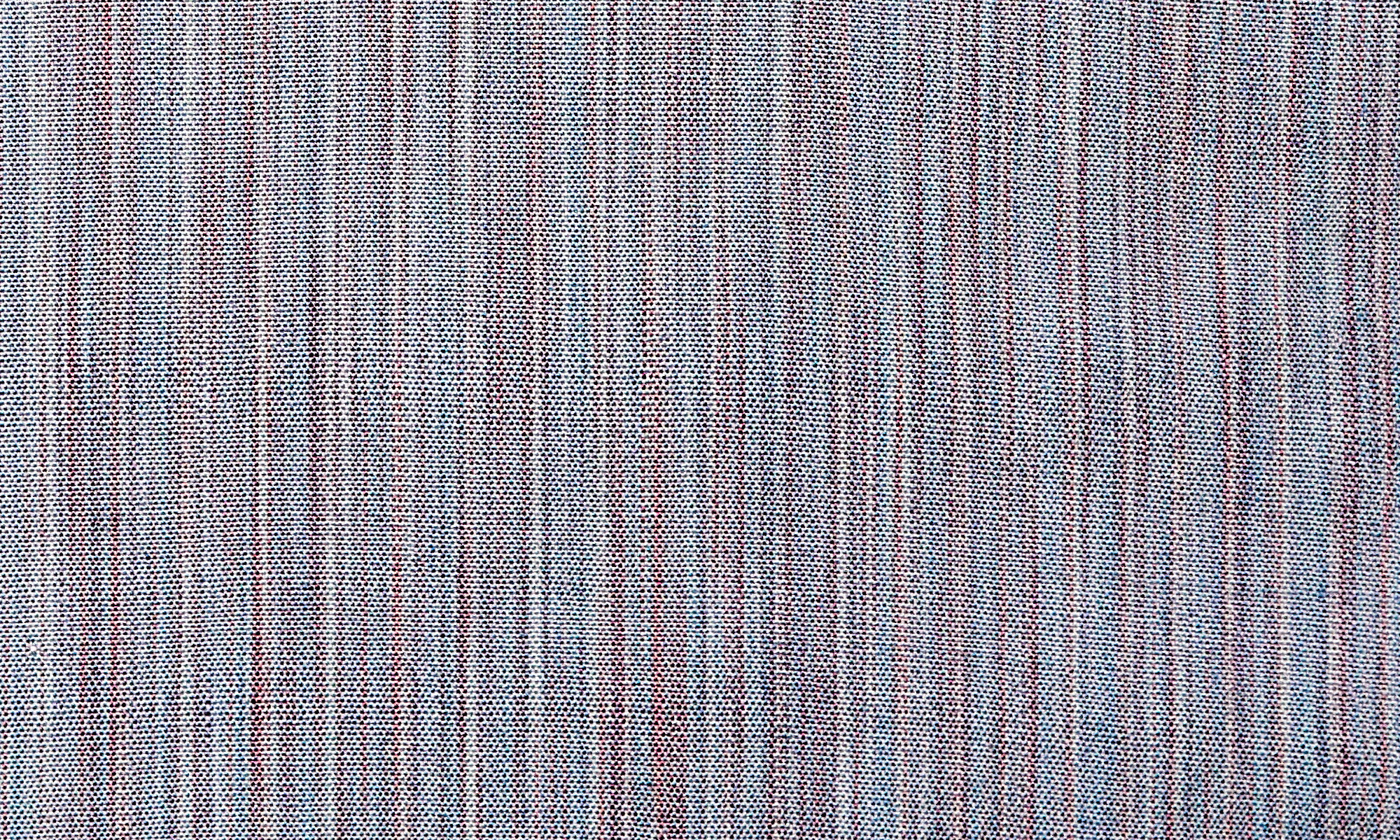As a member of the Weavers’ Guild of Boston, I volunteered to make a blanket for one of the houses at Plimouth Plantation. The idea is to have blankets that resemble what would have been in the houses originally, but that are touchable to the visiting public. This was almost a year ago, and I had just gotten a new-to-me Glimakra counterbalance loom.
The pattern was simple, a 4-shaft 2/2 twill sett at 8 epi. It was to have 5 color stripes at each end of the blanket. The tricky part is that due to the width, it had to be woven in two panels and then sewn together. In order for the stripes to match up, the beat and measurements needed to be precisely the same on both panels.
Not wanting to test run my new loom on such an important project (and with someone else’s yarn,) I made a prototype with some Harrisville yarn I had purchased. The loom has a sectional warp beam, so I decided to try that out in the process. That had a steep learning curve, but worked out well in the end!

Using a 10 dent reed, I sleyed 1-1-1-1-0. (My instinct regarding the forgiveness of the Harrisville yarn proved correct, and after fulling, the reed pattern can’t be seen.) To ensure even panels, I marked the stripe pattern on two long lengths of adding machine tape and pinned it to the blanket panels as I wove. As soon as I started weaving, it was obvious that sett at 8 epi, a square beat of 8 ppi was unrealistic. With only the epi specified, the picks per inch were up to me, and the prototype ended up at about 15 ppi, which made a very thick blanket after fulling. True confession: I actually ran out of one of the stripe colors with about a half dozen picks remaining to weave. I called Harrisville and talked with a very nice person, who found the same color in stock and sent me the 30 or so yards I needed to complete the project. Thank you, kind person at Harrisville, for coming to the rescue! The slight variation in dye lot, which can’t even be seen in the photo, makes the actual blanket look just a little more authentic!
Once I was comfortable with the loom and had convinced myself that the design was viable, I was ready to weave the real thing. Again, I wound a sectional warp. This time, however, I relaxed my beat, pulling the beater just enough to set the weft into place, which resulted in 10 ppi. This was not as easy as beating it in with a good pull like on the prototype, but with some care and constant measuring, I was able to make 2 *exactly* equal panels. I used a temple on both blankets to keep the cloth from drawing in excessively.

Once the weaving was done, it had to be seamed and bound. The seam was made by sewing a continuous end, alternately catching one weft on each side, consistent with the 2/2 twill pattern. The result looks like an additional warp end. The ends are folded and bound with a decorative blanket stitch.

Fulling was accomplished in my shower, which has pebbles on the bottom, but was inspired by a waulking I participated in with Norman Kennedy at Marshfield School of Weaving last summer. At a waulking, a small amount of water saturates the cloth, which is bunched up lengthwise and passed along in a circle, each person squishing and pushing the fabric along. By myself in the shower, the motion was somewhat limited, but after over 45 minutes of pushing the cloth around with my feet, I had a nicely fulled cloth. I draped it on a clothes rack to dry, first in the shower and then outside.
Shrinkage was 17% in the weft but only 11% in the warp, which was surprising due to the relatively loose beat. The finished blanket size is 58″ x 87″. As of this writing, Plimouth Plantation has a delayed opening due to COVID-19 restrictions, but hopefully sometime this summer the blanket will be in use in one of the houses there! (In the mean time, Clara is enjoying it.)




